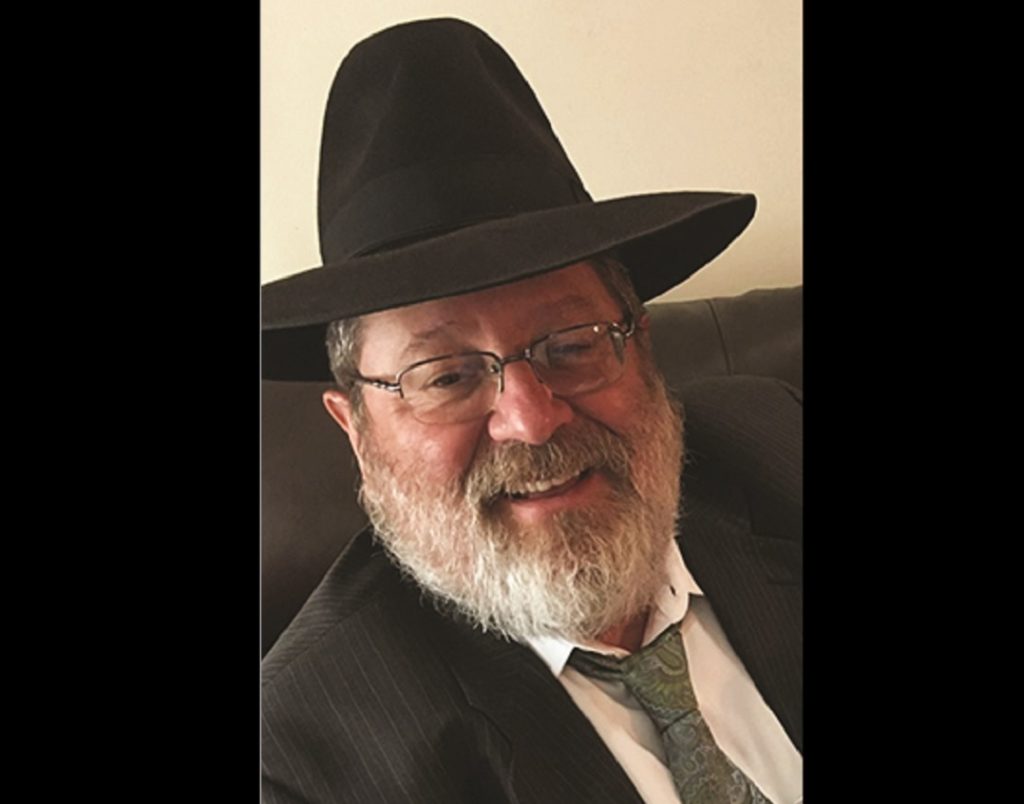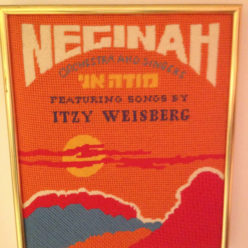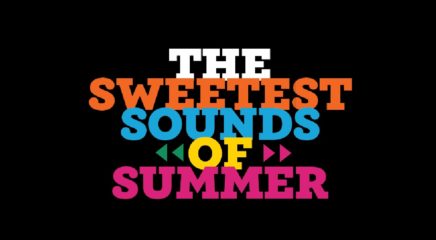Song: Ani Ma’amin
Album: Ani Ma’amin (Pirchei Choir III)
Composers: Itzy Weisberg and Motty Parnes
Year: 1968
I It was 1968 and the message was old but new. “Ani Ma’amin” had been sung by the lager Yidden a declaration of resolute faith on the lips of martyrs and survivors in the shadow of gas chambers and crematoria. Now a new and powerful setting of “Ani Ma’amim” symbolized all that was idealistic among frum American youth of the 1960s.
The cover of the third Pirchei Choir record titled Ani Ma’amin in honor of this song read: “Today’s ‘Ani Ma’amin’ has a special message to the Jew caught up in the maelstrom of modern-day affluence ...You still need this eternal faith in the coming of Mashiach to withstand the moral ravages faced by a generation that worships man’s own power over the power of G-d… This Pirchei record is dedicated toward imbuing this ani ma’amin spirit in the masses… to help build a flourishing Klal Yisrael equipped to march forward toward the coming of Mashiach.”
The composers of “Ani Ma’amin” are listed as Itzy Weisberg and Motty Parnes while the names on the Pirchei record cover are a nostalgic who’s who of early Jewish music: Rabbi Eli Teitelbaum a”h Motty Parnes a”h Rabbi Baruch Chait Yisroel Lamm and his brothers Dovid Nulman and Rabbi Eliyahu Klang.
“Most of those musicians played at my wedding in Chicago” says Mr. Itzy Weisberg who lives in Detroit today. “It was 1967 and definitely the first time Chicago had heard a band like that.” Mr. Weisberg retired from an education career in 2010 after 40 years teaching English literature and writing in public school — “with a yarmulke ” he comments. He also taught afternoon Hebrew school and notes that “some of those students have frum grandchildren today. A lot of our impact was through Jewish song and davening.”
A talmid of Telshe in Cleveland and Chicago then of Yeshivas Chaim Berlin and finally Yeshivah Gedolah of Detroit under Rav Leib Bakst Mr. Weisberg’s contribution to Jewish music is considerable. “Ani Ma’amin” is his most enduring song recorded and sung by many artists over close to 50 years. That niggun is closely followed by the still-popular “Siman Tov U’mazel Tov” from the Pirchei and Neginah albums. “Keitzad Merakdim” was recorded by Camp Sdei Chemed “Pischu Li” featured soloist Yossi Sonnenblick on the very first Pirchei album (composed together with Motty Parnes who also collaborated on “Davka Nafshi ” another vintage Pirchei tune) and many others.
“I am immensely grateful to Rabbi Teitelbaum and Yisroel Lamm — the greatest arranger and conductor of Jewish music in our lifetime — as well as the other producers for selecting my songs” Weisberg says as he reflects on an avocation that has touched the hearts of three generations.
Neginah Orchestra’s Modeh Ani album (1976) featured 15 Weisberg compositions and Suki and Ding’s What a Wedding album featured his “Asher Bara” co-composed by Yisroel Lamm. Later at “The Event” concert in 2005 a nostalgic Pirchei performance of “Ani Ma’amin” and “Pirschu Li”— warm simple tunes and arrangements of times gone by — entranced a packed concert hall.
“Ani Ma’amin” has become a musical legend in its own right absorbing some of the timeless quality of the prayer itself to become an immovable classic for nearly 50 years. The song begins low and contemplative. Its high part a soaring declaration of hope “Ve’af al pi she’yismahmaya im kol zeh achakeh lo achakeh lo bechol yom sheyavo ” has served as the uplifting highlight of thousands of kumzitzes from NCSY to Aish Hatorah Bnos and Pirchei to Ohr Somayach American summer camps to IDF platoons.
“Someone sent me a clip which was just a pleasure to watch. The Kosel Plaza filled to bursting with IDF inductees singing ‘Ani Ma’amin.’”
Actually the song’s first segment was composed while Itzy was on a Shabbos walk together with his friend Motty Parnes in Telshe Chicago back in 1964. By the time Shabbos was over he’d forgotten the niggun but Parnes revived it for him and Itzy promised that if he’d ever complete the niggun he’d credit his friend for saving the song. A year later when Itzy was learning in Detroit and studying at Wayne State University he completed the niggun and introduced it to the yeshivah at Shalosh Seudos. When they sang it for 45 minutes straight Itzy knew he had a winner. He sent a cassette of the niggun to Motty Parnes and Rabbi Eli Teitelbaum who were working with Pirchei then — and the rest is one unending glorious song of faith. “Ani Ma’amin” sung solo or in a chorus of hundreds of voices carries singers and listeners along on a wave of certainty. Mr. Weisberg doesn’t take the credit though. “The song was a gift from Hashem.”
(Originally featured in Mishpacha Issue 620)




